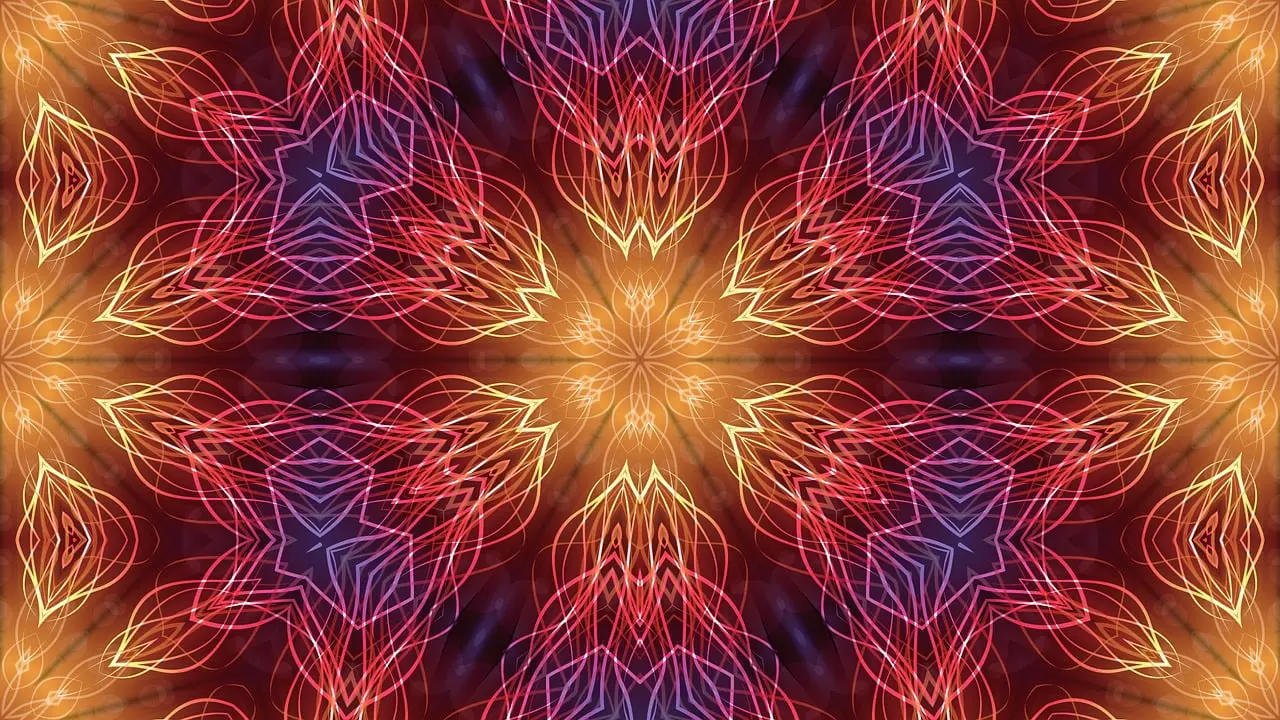Lumad Heritage: Preserving Indigenous Cultures

Looking for more amazing products? Check out our online store and explore our collection here! Happy shopping!
Before diving in, please note: This post is for informational purposes only. If you’d like to know more about how we approach topics, feel free to check out our friendly Disclaimer Page.
Hey there, amazing readers! 
We’re committed to delivering quality posts, and your support (even just sticking around despite the ads) means everything to us. So, bear with us, and thanks for helping us keep the good vibes rolling. Now, on to the fun stuff!
TRANSLATE BUTTON AT THE END OF THE ARTICLE
Introduction: Understanding Lumad Culture
The Lumad people are indigenous groups in the Philippines, known for their rich cultural heritage that dates back centuries.
The Lumad communities are comprised of various tribes, each with its distinct language, customs, and traditions.
Understanding Lumad culture is essential to appreciate the depth of their beliefs and practices, which are closely tied to their ancestral lands.
The Lumad have a deep connection to nature and a profound respect for the environment, shaping their way of life and societal structure.
Preserving Lumad heritage is crucial to safeguarding their identity and ensuring the continuity of their unique traditions for future generations.
The Significance of Preserving Lumad Heritage
Preserving Lumad heritage is not just about conserving traditions; it is about upholding the rights and dignity of an entire indigenous community.
The Lumad culture encapsulates a wealth of knowledge, values, and practices that hold the key to sustainable living and harmonious coexistence with nature.
By safeguarding Lumad heritage, we honor the resilience and wisdom of these indigenous peoples who have lived in harmony with their surroundings for generations.
Their heritage serves as a beacon of cultural diversity and a testament to the richness of human experience.
Threats to Indigenous Cultures in the Philippines
Despite the intrinsic value of indigenous cultures like the Lumad, they face various threats that endanger their way of life.
Land grabbing, resource extraction, and displacement are among the significant challenges that Lumad communities encounter.
These threats not only disrupt their traditional practices but also undermine their cultural identity and social cohesion.
In addition, discrimination, marginalization, and lack of recognition exacerbate the vulnerability of indigenous peoples, including the Lumad.
Addressing these threats is crucial to ensuring the survival and thriving of Lumad heritage.
Overview of Lumad Indigenous Communities
The Lumad indigenous communities comprise a diverse array of tribes, such as the Manobo, T’boli, Subanen, and many others, each with its unique language, beliefs, and customs.
These communities inhabit various regions across Mindanao, the second-largest island in the Philippines, where they have maintained their cultural distinctiveness amidst modernization.
The Lumad people have a deep sense of kinship and communal ties that are reflected in their social structure and governance systems.
They live in close harmony with nature, drawing sustenance and spiritual guidance from the land, rivers, and forests that surround them.
Traditional Practices and Beliefs of the Lumad
The Lumad communities practice a wide range of traditional rituals, ceremonies, and art forms that are integral to their cultural identity.
These practices encompass agricultural rites, healing ceremonies, and storytelling traditions that serve as vehicles for passing down knowledge from one generation to the next.
The Lumad believe in the interconnectedness of all living beings and the spiritual forces that govern the natural world.
Their traditional beliefs underscore the importance of reciprocity, respect for ancestors, and a holistic approach to life that honors the balance between humans and the environment.
Challenges in Preserving Lumad Heritage
Preserving Lumad heritage faces various challenges, including encroachment on ancestral lands, lack of government support, and cultural assimilation.
The rapid development and exploitation of natural resources in Lumad territories threaten their way of life and traditional practices.
Moreover, the lack of adequate education and healthcare facilities in indigenous communities hinders the transmission of cultural knowledge and perpetuates social inequalities.
Upholding Lumad heritage requires addressing these challenges comprehensively and empowering indigenous communities to protect and promote their cultural legacy.
Efforts to Safeguard Lumad Culture
Several organizations, advocacy groups, and indigenous leaders are actively involved in safeguarding Lumad culture and advocating for the rights of indigenous peoples in the Philippines.
These efforts include legal battles to protect ancestral lands, cultural revitalization programs, and community-based initiatives that promote sustainable development.
By raising awareness about the importance of Lumad heritage and advocating for the recognition of indigenous rights, these efforts contribute to preserving the cultural integrity and dignity of the Lumad communities.
Collaboration between various stakeholders is essential to ensure the long-term sustainability of these initiatives.
Importance of Recognizing Indigenous Rights
Recognizing and upholding the rights of indigenous peoples, including the Lumad, is fundamental to preserving their cultural heritage and ensuring their well-being.
Indigenous rights encompass land rights, self-determination, cultural autonomy, and the right to participate in decision-making processes that affect their communities.
By respecting and protecting these rights, governments, and societies can create an enabling environment for indigenous peoples to thrive and uphold their unique traditions.
Recognition of indigenous rights is a crucial step towards rectifying historical injustices and fostering inclusive and equitable societies.
Role of Education in Upholding Lumad Heritage
Education plays a pivotal role in upholding Lumad heritage by empowering indigenous youth to value their cultural identity, history, and traditions.
Integrating indigenous knowledge systems and practices into the curriculum and providing culturally relevant education can help preserve and revitalize Lumad heritage.
By promoting pride in their cultural heritage, education instills a sense of belonging and self-esteem among Lumad youth, equipping them with the tools to navigate the challenges of modernity while honoring their ancestral legacy.
Education is a powerful catalyst for intergenerational transmission of cultural knowledge and fostering cultural resilience among indigenous communities.
Collaboration with Indigenous Communities
Collaboration with Lumad communities is essential for the successful preservation and promotion of their cultural heritage.
Engaging indigenous leaders, elders, and community members in decision-making processes ensures that their voices are heard and their perspectives are valued.
Building partnerships based on mutual respect, trust, and reciprocity reinforces the agency and self-determination of indigenous peoples in shaping their future.
By fostering inclusive and participatory approaches to cultural preservation, collaboration with Lumad communities strengthens the resilience of their traditions and fosters a sense of collective ownership over their heritage.
Promoting Cultural Appreciation and Respect
Promoting cultural appreciation and respect for Lumad heritage is crucial in fostering understanding and solidarity among diverse communities.
By engaging in cultural exchange programs, art exhibitions, and traditional showcases, we can raise awareness about the richness and diversity of Lumad culture.
Creating platforms for dialogue, storytelling, and cultural exchange enables individuals from different backgrounds to learn from each other and celebrate the unique contributions of indigenous peoples to society.
By promoting cultural appreciation and respect, we can counter stereotypes, prejudices, and discrimination that perpetuate the marginalization of indigenous communities.
Building a Sustainable Future for Lumad Culture
Building a sustainable future for Lumad culture requires a holistic approach that addresses social, economic, environmental, and cultural dimensions.
By promoting sustainable livelihoods, land rights, and environmental conservation, we can safeguard the integrity of Lumad heritage and ensure the well-being of indigenous communities.
Investing in education, healthcare, and capacity-building programs tailored to the needs of Lumad communities empowers them to preserve their cultural identity and thrive in a rapidly changing world.
By fostering partnerships, advocating for indigenous rights, and promoting cultural resilience, we can build a future where Lumad culture flourishes and continues to inspire generations to come.
Conclusion
In conclusion, preserving Lumad heritage is essential for honoring the unique traditions, knowledge, and values of indigenous communities in the Philippines.
By understanding the significance of Lumad culture, recognizing the threats they face, and supporting efforts to safeguard their heritage, we can contribute to a more inclusive and just society.
Upholding indigenous rights, promoting cultural appreciation, and building sustainable partnerships with Lumad communities are crucial steps towards ensuring the continuity and vitality of their cultural legacy.
By working together to preserve Lumad heritage, we can celebrate the diversity of human experience and create a more equitable and sustainable future for all.

The Enlightenment Journey is a remarkable collection of writings authored by a distinguished group of experts in the fields of spirituality, new age, and esoteric knowledge.
This anthology features a diverse assembly of well-experienced authors who bring their profound insights and credible perspectives to the forefront.
Each contributor possesses a wealth of knowledge and wisdom, making them authorities in their respective domains.
Together, they offer readers a transformative journey into the realms of spiritual growth, self-discovery, and esoteric enlightenment.
The Enlightenment Journey is a testament to the collective expertise of these luminaries, providing readers with a rich tapestry of ideas and information to illuminate their spiritual path.
Our Diverse Expertise
While our primary focus is on spirituality and esotericism, we are equally passionate about exploring a wide range of other topics and niches 

To ensure we provide the most accurate and valuable insights, we collaborate with trusted experts in their respective domains 
Our blog originally focused on spirituality and metaphysics, but we’ve since expanded to cover a wide range of niches. Don’t worry—we continue to publish a lot of articles on spirituality! Frequently visit our blog to explore our diverse content and stay tuned for more insightful reads.
Hey there, amazing reader! 
Check out our store here and take a peek at some of our featured products below! Thanks for being awesome!












